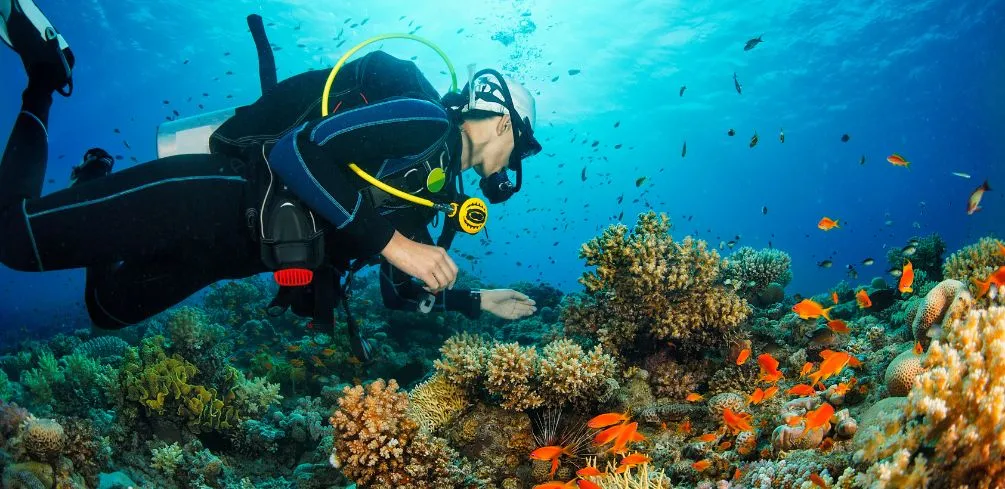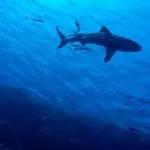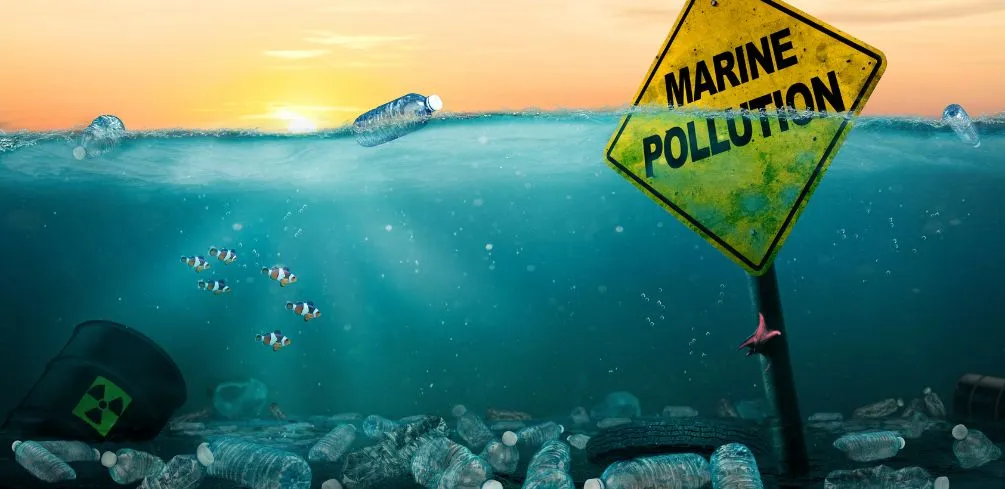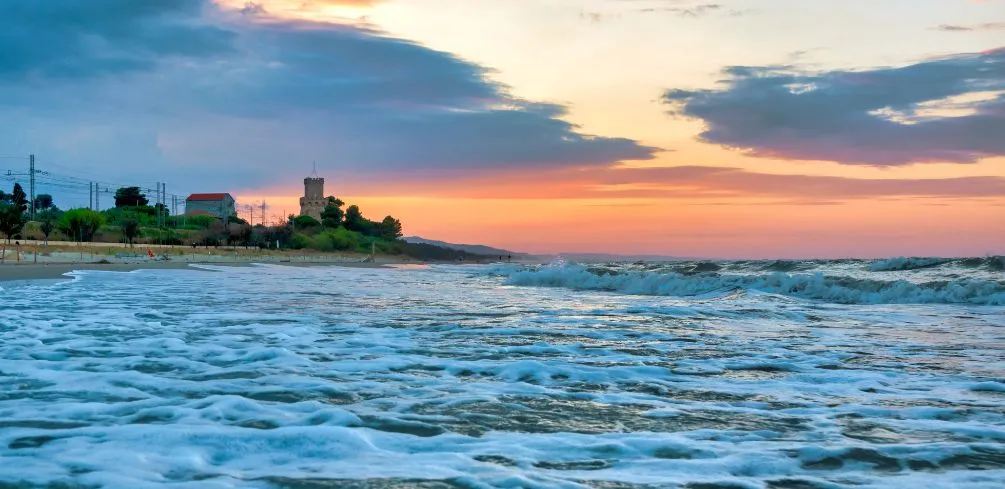We all know the power of the ocean and its inhabitants. We have seen them in movies, heard stories about them, and even experienced their beauty first-hand. But do we truly understand the impact of human activity on marine wildlife?
From overfishing to pollution, human actions are having a profound effect on marine life. In this article, we will explore the ways that humans are impacting our oceans and what can be done to prevent further damage.
It’s no secret that our oceans are facing immense pressure from humans. From oil spills to plastic pollution, we are wreaking havoc on the delicate ecosystems beneath the waves.
As a result, many species of marine wildlife have been pushed to the brink of extinction or even completely wiped out altogether. In addition to this, overfishing has caused populations of commercially valuable fish to plummet dramatically in recent decades.
The effects of human activity on Marine Wildlife is one of the most pressing issues facing humanity today – and it’s up to us as individuals to take action and protect these species for future generations. Through education and sustainable practices, each one of us can make an impact and help secure a healthier ocean for our planet’s inhabitants.
In this article, we will explore how human activities affect marine wildlife, why it’s so important that we act now, and what steps we can take as individuals to protect them from further harm.
Overview Of Human Activity In Marine Environments
Humans are a major force of nature, with our activities having a far-reaching impact on the marine environment. It’s like an invisible web of influence, with maritime activities and coastal ecosystems often feeling its effects. To put it bluntly, human activity in marine environments can be described as an all-encompassing wave of destruction, from overfishing to pollution.
Let’s start with fishing. This is one of the oldest human activities and has been going on for millennia. But now, it has become so extensive that it threatens the survival of some species and can cause long-term damage to entire marine ecosystems. Overfishing is not only depleting fish stocks but also killing off other marine life, such as dolphins and turtles who get caught in fishing nets or boats’ propellers.
The second major threat to the ocean comes from pollution. Industrial waste, including chemicals and heavy metals, is dumped into the sea without much thought for its consequences. These pollutants not only poison fish and other aquatic life but also disrupt delicate food webs and affect entire ecosystems in unpredictable ways.
Humans also modify marine environments by constructing ports, bridges, and dams, which can have negative impacts on local habitats and species populations. Our expanding populations also mean more people living along coastlines, which puts extra pressure on important ecosystems like coral reefs or estuaries that provide vital resources for humans and wildlife alike. All these changes have significant implications for marine wildlife, making it increasingly difficult for them to survive in their natural habitats.
Pollution And Its Effects On Marine Life
Having discussed the various forms of human activity in marine environments, it is important to understand the detrimental effects that pollution has on marine life. Pollution is one of the biggest threats to ocean health, and many species of marine life are facing extinction due to its damaging effects.
The primary sources of marine pollution include oil spills, sewage, fertilizer runoff, plastic debris, and chemical waste. All of these pollutants can have devastating impacts on the health of marine life and ecosystems.
Oil spills, for example, can smother organisms and contaminate their food supply, while sewage can introduce bacteria and viruses that can cause disease. Fertilizers from farm run-off can lead to an increase in algae growth which can cause a decrease in oxygen levels leading to fish kills.
Additionally, plastic debris such as water bottles and straws can choke or entangle sea creatures as well as introduce toxins into the water column. Finally, chemicals from industrial processes like mining operations and pharmaceutical manufacturing have been linked to a decrease in biodiversity.
The effects of pollution on marine life are complex and far-reaching:
- Physical Impacts:
- Suffocation
- Contamination
- Entanglement
- Biological Impacts:
- Disease & Infection
- Reproductive Problems
- The decline in Species Diversity
It is clear that pollution has had a major impact on both marine species and their habitats. Without significant efforts to reduce these sources of contamination, we will continue to see declines in ocean health and further endangerment of our precious wildlife.
Overfishing And Its Effects On Marine Life
The sun is setting over the vast ocean, the water a deep blue-green. The waves roll in, telling stories of its inhabitants. But the stories that this ocean’s creatures have to tell are not what they used to be. Overfishing has become an increasingly serious issue for marine life, with global fishing practices having a major impact on their lives.
Overfishing occurs when fishermen harvest more fish than can be replenished by natural reproduction or growth. This problem has become especially prevalent due to recent technological advances making it easier for fishermen to capture large amounts of fish with minimal effort. As a result, many species are being overfished, and their populations are declining at alarming rates.
Not only does overfishing mean that fewer fish are available for humans to eat, but it also affects the entire ecosystem in which they live. Many other marine animals rely on these fish as food sources, so when their populations decline, it can wreak havoc on the delicate balance of life in an ocean environment. It also disrupts migration patterns and reproductive cycles, leading to further population declines and environmental destabilization.
There is no doubt that overfishing is having a serious effect on marine life and ecosystems around the world. We must recognize this issue and take action now if we wish to protect our oceans and their inhabitants from further harm and destruction. Doing so will ensure that future generations have the opportunity to experience these amazing creatures in all their beauty and glory.
Climate Change And Its Effects On Marine Life
Climate change is having a major impact on marine life. As climate change warms the planet, ocean temperatures are increasing. This leads to a decrease in oxygen levels and an increase in acidity, both of which drastically affect the health of marine creatures. In addition, rising sea levels due to melting polar ice caps are creating more flooding and coastal erosion, making it difficult for aquatic species to survive.
For example, coral reefs are particularly vulnerable to climate change. Warmer ocean temperatures cause corals to bleach, leading to a decline in biodiversity as well as a decrease in habitats for fish and other marine animals.
Ocean acidification is also depleting the calcium carbonate that many sea creatures need for shells and skeletons. Furthermore, some species are unable to adapt quickly enough to their changing environment, leading to population declines or even local extinctions.
The effects of climate change on marine life will only become more pronounced unless we take action now. We must reduce our emissions of greenhouse gases so that global temperatures can stabilize.
We must also work together on solutions such as restoring degraded habitats and protecting vulnerable areas from over-exploitation. If we do not make these changes soon, the consequences will be catastrophic for our oceans and all the life they support.
Conservation Efforts To Protect Marine Wildlife
It’s no secret that human activity has had a devastating impact on marine wildlife. But, there are conservation efforts underway to protect and preserve our oceans and the species that inhabit them.
Marine conservation is a broad term covering various methods of protecting ocean life, such as creating protected areas, restoring habitats, regulating fisheries, and reducing pollution. Marine conservationists strive to maintain the health of aquatic ecosystems by preserving vital habitats and preventing overfishing. They also work hard to reduce plastic waste in our oceans, as this can be deadly for marine wildlife.
The ocean is essential for sustaining life on Earth, so it’s essential that we all do our part to protect it. We can help by supporting organizations dedicated to ocean conservation or advocating for marine life protection policies. We can also do our own part by slowing down climate change through sustainable practices such as reducing plastic use or avoiding single-use plastics altogether. Every little bit helps!
By making sure we take care of our oceans, we are ensuring a healthier future for not just us but for generations to come. There is still much more to be done, but with everyone doing their part, we can look forward to a brighter future where marine wildlife is protected and thrive once again.
Frequently Asked Questions
What Specific Human Activities Are Having A Negative Impact On Marine Wildlife?
We are all aware that human activities have a profound effect on marine wildlife. But what specific activities are having the most negative impacts? In this article, we will explore some of the key culprits: marine pollution, overfishing, climate change, industrial waste, and fishing gear.
Marine pollution is one of the major causes of harm to marine wildlife. This encompasses anything from the illegal dumping of chemicals into oceans to oil spills. These pollutants can cause not only physical damage to animals but also disrupt their natural habitats. Many species become sick or die due to the toxic substances in our waters.
Overfishing is another serious issue facing many species today. As our demand for seafood continues to increase, vulnerable species like sharks and tuna are being depleted at an alarming rate. The use of large-scale commercial fishing vessels equipped with sophisticated technology allows them to catch more fish than ever before. Not only does this reduce populations of certain species, it also leaves behind a lot of debris, such as fishing nets which can strangle or entangle wildlife in its path.
Climate change has had a dramatic impact on marine ecosystems in recent years. Warmer temperatures lead to changes in currents and oxygen levels which can be fatal for some species. Industrial waste has also been linked to ocean acidification which reduces vital nutrients for aquatic life and causes coral bleaching, which leads to the death of corals and the destruction of entire reef systems.
In summary, human activities have caused irreversible damage to many marine ecosystems around the world. The combination of marine pollution, overfishing, climate change, industrial waste, and fishing gear has put immense strain on fragile ecosystems and disrupted the lives of many species living within them.
If we are going to protect our oceans and their inhabitants for future generations, then drastic action must be taken now before it is too late!
How Can Individuals Help To Protect Marine Wildlife?
We all know that human activities are having a negative impact on marine wildlife, but how can individuals help to protect it? One way is to opt for sustainable seafood. Choosing sustainable seafood helps to reduce the number of endangered species and protect the ocean’s vital ecosystems.
It also reduces bycatch, which is when non-targeted species are unintentionally caught in fishing nets and lines. Another way is to support marine conservation efforts.
This can be done through donations to charities that focus on protecting marine animals and their habitats or through volunteering with local organizations. Additionally, participating in ocean cleanups helps remove any plastic waste from the sea and prevents further harm to marine life.
Reducing plastic consumption or switching to reusable items can also make a difference – single-use plastics are one of the biggest contributors to ocean pollution. Supporting eco-tourism initiatives is another great option – this type of tourism supports local conservation efforts and helps ensure that marine life remains well protected in the future.
There are plenty of things we can do as individuals to help protect marine wildlife – from supporting conservation projects, reducing plastic use, and opting for sustainable seafood to participating in ocean cleanups and eco-tourism initiatives. Every action counts when it comes to preserving our oceans and protecting their inhabitants!
Are There Any Existing Laws Or Regulations To Protect Marine Wildlife?
Do we really care enough to protect marine wildlife? Are there any laws or regulations to help us do that? It seems like a rhetorical question, but the truth is, if we want to protect marine wildlife, we need to understand the existing laws and regulations in place.
Let’s take a satirical look at this situation: If you were a fish in the ocean, would you be aware of all the existing laws and regulations meant to protect you? Probably not. But lucky for us humans, there are legal systems in place that can help us protect marine wildlife.
These existing laws and regulations cover things like fishing quotas, habitat protection zones, and bans on certain activities like mining or drilling. They are designed to reduce human impact on marine ecosystems and safeguard endangered species from harm.
But it doesn’t stop there – education is another important factor when it comes to protecting our oceans. By teaching people about sustainable practices, such as reducing plastic waste and using biodegradable products, we can ensure that future generations can continue enjoying our planet’s rich marine life.
At the end of the day, it’s up to us as individuals to do our part in protecting marine wildlife by following existing laws and regulations. We all have a responsibility towards our environment; let’s make sure that we act upon it!
What Is The Most Effective Way To Reduce The Amount Of Pollution Entering The Oceans?
When it comes to reducing the amount of pollution entering our oceans, a number of strategies must be employed. We need to focus on both reducing waste and cleaning up the mess that has already been made. Ocean conservation is crucial for protecting marine wildlife and preserving our planet’s precious ecosystems.
One effective way to reduce ocean pollution is to reduce the amount of plastic waste we produce. Every year, millions of tonnes of plastic end up in the ocean, primarily from single-use packaging and discarded items such as bottles, bags, straws, and fishing gear. To address this issue, governments should invest in more sustainable production systems and promote reuse initiatives like reusing containers or shopping with reusable bags.
Another key strategy is to clean up the oceans by supporting ocean clean-up initiatives. This could include projects such as deploying large-scale booms to capture floating debris before it can enter marine ecosystems or using drones equipped with nets to target specific areas that are heavily polluted with plastic waste. Such projects can help us remove existing plastic pollution from our oceans and also raise awareness about the importance of marine conservation and reducing plastic waste in the first place.
We all have a role to play in protecting our oceans from further damage due to human activities – whether it be through reducing our own consumption or contributing to clean-up efforts. It’s time we come together and take action against ocean pollution before it’s too late!
What Are The Long-Term Effects Of Overfishing On Marine Life?
Overfishing is a major problem for marine life, ecosystems, and fisheries. It has far-reaching consequences that can be felt for many years after it occurs. As fishing technology has improved, the practice of overfishing has become more common, and the effects are being seen across the world’s oceans.
The long-term effects of overfishing are wide-ranging. Fish populations can decrease significantly, leading to an overall decline in biodiversity. This, in turn, affects the entire ecosystem, as other species rely on fish for their survival. In addition, when certain fish populations are depleted, it can lead to a decrease in a catch for fisheries, resulting in financial losses for those involved in fishing.
These serious consequences make it clear that something needs to be done about overfishing. It is essential that regulations are put into place to ensure sustainable practices and encourage responsible fishing habits. By doing so, we can help protect marine life and maintain healthy ecosystems for future generations.
Conclusion
We have seen that human activities, such as pollution and overfishing, are having a devastating impact on marine wildlife. We must take responsibility for our actions before it is too late. Our actions today will determine the future of our oceans and the creatures that inhabit them.
The urgency is palpable; if we don’t act now to protect marine life, our oceans will be unrecognizable in just a few short years. The effects of our negligence will be felt by thousands of species, many of which are already endangered or close to extinction.
We must do more than simply abide by existing laws and regulations – we need to go above and beyond in order to make a real difference.
It is up to us to ensure that future generations are able to experience the beauty of our oceans. We can start by reducing the number of pollutants entering the waters, implementing stricter regulations for overfishing, and educating ourselves about how we can help protect marine wildlife. Let us all commit ourselves to take action now so that we can continue enjoying these precious habitats for years to come!






